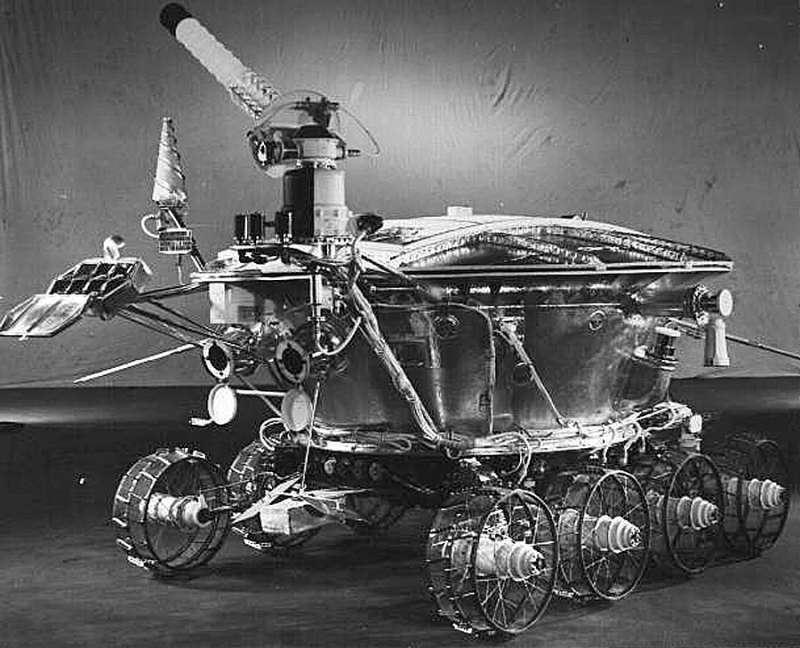Credit & Copyright: Lavochkin Association
Explanation:
It may look like some sort of cute alien robot, but it was created here on Earth,
launched to the Moon in 1970, and now reflects laser light in a scientifically useful
way.
On November 17, 1970 the Soviet
Luna 17 spacecraft landed the first roving remote-controlled robot
on the Moon.
Known as
Lunokhod 1,
it weighed just under 2,000 pounds and was
designed to operate for 90 days while
guided in real-time by a five person team near Moscow, USSR.
Lunokhod 1 toured
the lunar Sea of Rains (Mare Imbrium) for 11 months in one of the
greatest successes of the
Soviet lunar exploration program.
This Lunokhod's operations officially ceased in 1971.
Earlier this year, however, the position of the rover was recovered by NASA's moon-orbiting
Lunar Reconnaissance Orbiter.
Given that position, laser pulses from Earth were successfully bounced off the old
robot's reflector.
Bouncing laser pulses off of this and other lunar reflectors could yield range
data to the moon accurate enough to track millimeter-sized
deviations in the Moon's orbit, effectively probing lunar
composition and testing gravitational theories.
1999 2000 2001 2002 2003 2004 2005 2006 2007 2008 2009 2010 2011 2012 2013 2014 2015 2016 2017 2018 2019 2020 2021 2022 2023 2024 2025 2026 |
Yanvar' Fevral' Mart Aprel' Mai Iyun' Iyul' Avgust Sentyabr' Oktyabr' Noyabr' Dekabr' |
NASA Web Site Statements, Warnings, and Disclaimers
NASA Official: Jay Norris. Specific rights apply.
A service of: LHEA at NASA / GSFC
& Michigan Tech. U.
|
Publikacii s klyuchevymi slovami:
laser - Moon - Luna - Luna-17 - Lunohod-1
Publikacii so slovami: laser - Moon - Luna - Luna-17 - Lunohod-1 | |
Sm. takzhe:
Vse publikacii na tu zhe temu >> | |
